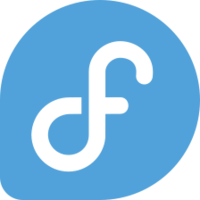Fedora CoreOS - Your Next Multiplayer Homelab Distro
Using Fedora CoreOS in a Selfhosted Homelab to setup a Multiplayer Server
- Track: Containers devroom
- Room: UB2.252A (Lameere)
- Day: Saturday
- Start: 11:30
- End: 12:00
- Video only: ub2252a_lameere
- Chat: Join the conversation!

Fedora CoreOS is a basic, monolithic, automatically updating operating system that is optimised for running containers. It focuses on offering the best container host for executing containerized workloads securely and at scale. This fits perfectly the requirement for setting up a container-oriented self-hosted homelab and in this talk, we would detail that and go one (or more steps) further by providing a case study of setting up Fedora CoreOS as a self-hosted homelab distribution for globally accessible (using secure network tunnelling) multiplayer servers for video games (namely, Minecraft, Valheim etc.).
Who is the target audience?
- Professional sysadmins who use Fedora CoreOS but want to know more applications
- Budding community members wanting to contribute to the upstream projects
- GNU/Linux distribution users who are on the fence, about trying a different workflow
- Video game enthusiasts who run (or plan to run) their dedicated multiplayer servers
- Self-hosted homelab followers who maintain a home infrastructure as a hobby
- Software engineers or students who wish to learn sysadminship with Fedora CoreOS
How is the target audience benefited?
- Professional sysadmins (who already use Fedora CoreOS or similar distros) would learn about other creative applications like running a multiplayer server.
- Budding community members would know how they can contribute to the upstream projects that provide a well-suited container-oriented distro.
- GNU/Linux distribution users would be helped with their decision by knowing the difference between the workflows used in regular distros and that in Fedora CoreOS.
- Video game enthusiasts would get bragging rights among their friends once understand (and apply) how to set up a multiplayer server seamlessly.
- Self-hosted homelab followers would obtain more insights on possible alternative operating systems like Fedora CoreOS for their current infrastructure setup.
- Software engineers or students would gain more information on where they can start from within the community (i.e. Fedora Infrastructure) with their learnings.
Speakers
| Sumantro Mukherjee | |
| Akashdeep Dhar |
Attachments
Links
- Fedora CoreOS Download Page
- Getting Started with Fedora CoreOS :: Fedora Docs (fedoraproject.org)
- Fedora CoreOS Issue Tracker
- Documentation for the workshop
- Slide deck
- Your Valheim server
- Your Minecraft server
- Video recording (WebM/VP9)
- Video recording (mp4/aac)
- Chat room (web)
- Chat room (app)
- Submit feedback